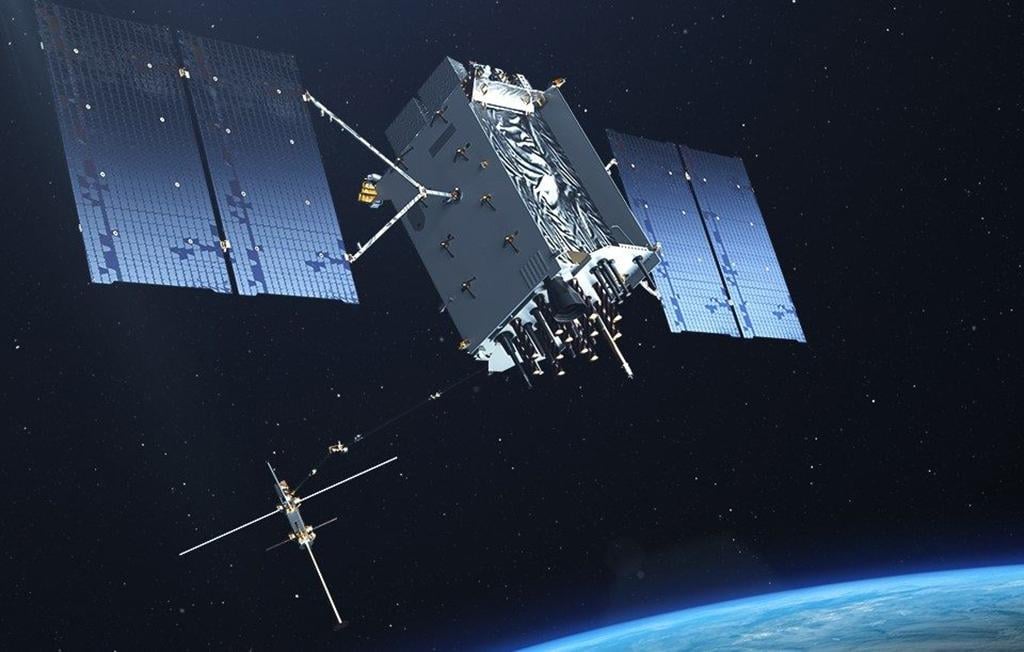
Ask the Editors: The Aviation Week Network invites our readers to submit questions to our editors and analysts. We’ll answer them, and if we can’t we’ll reach out to our wide network of experts for advice.
Why are GPS signals so vulnerable to disruption from the ground? And if GPS is so vulnerable, why haven’t actions been taken to remedy these vulnerabilities?
Jen DiMascio, Aviation Week’s Executive Editor, Defense and Space, responds:
It’s a perplexing question. The Pentagon has long known about the potential threat to GPS signals and is working to make the situation better for the military. Protecting the GPS signal for civilian users though is not as certain.
GPS signals are vulnerable to disruption because signals from satellites are weak by the time they reach receivers on the ground, Michael Griffin, the Pentagon’s undersecretary of defense for research and engineering, recently told the Senate Armed Services Committee. They are easily drowned out by stronger signals from ground-based networks. Therefore, the government has assigned GPS an exclusive portion of the radio spectrum.
Government rules have protected GPS by surrounding that portion of the spectrum with something of a buffer for decades. “But the radio spectrum is valuable property, worth many billions of dollars when portions of it are placed for auction by [the Federal Communications Commission],” Griffin said in his testimony. “Thus, unfortunately, some have proposed dismantling the rules that protect GPS in order to allow earthbound operators to use frequency bands previously reserved for space communications in general, and those adjacent to GPS in particular.”
The issue has come to a head as a result of Ligado Networks’ proposed use of L-band mobile satellite services bands to build a ground-based 5G Internet of Things network.
Lockheed Martin, which manufactures GPS III satellites that are in the process of being launched and has a contract to make next-generation GPS IIIF satellites, argues that Ligado would be operating against the current rules that call for a 1-dB safety margin near GPS signals. “We have recommended that the FCC conduct a hearing over disputed material facts in the record,” says Tonya Ladwig, acting vice president of navigation systems at Lockheed Martin. Rather than dismiss the 1-dB standard, it is recommended that the FCC issue an objective interference compliance standard. “Otherwise, Ligado will be left to adjudicate individual GPS interference complaints as to credibility and resolution,” she says.
But encouraging the FCC to maintain the existing rules still doesn’t address what the Pentagon is doing to remedy the situation. According to Ladwig, Lockheed’s GPS IIIF satellites will add a new regional military protection capability, allowing the government to focus higher military signal power into contested areas. But there is no such protection for civil signals—at least for now.
The Resilient Navigation and Timing Foundation was established to get at this exact question. “The federal government has promised to do a number of things to protect signals and users and has failed to follow through on a number of them,” says Dana Goward, the foundation’s president. “It is a real concern.”
One glimmer of hope is the National Timing Resilience and Security Act passed by the U.S. Congress and signed into law at the end of 2018. It calls for a terrestrial timing system to reinforce GPS by December and provides $10 million for a technology demonstration by the Transportation Department.
“The act requires only a timing backup, but it has to be expandable to be useful for navigation,” Goward says. “Studies have shown that even a single powerful, precise terrestrial timing signal incorporated into new GPS receivers will make them much more resilient to interference.” To date, Congress has provided no real funding beyond the demonstration. But the Transportation Department is expected to conclude its analysis in August—by thattime the department would know which systems it would want to purchase and the cost—before Congress takes up fiscal 2021 spending legislation.





